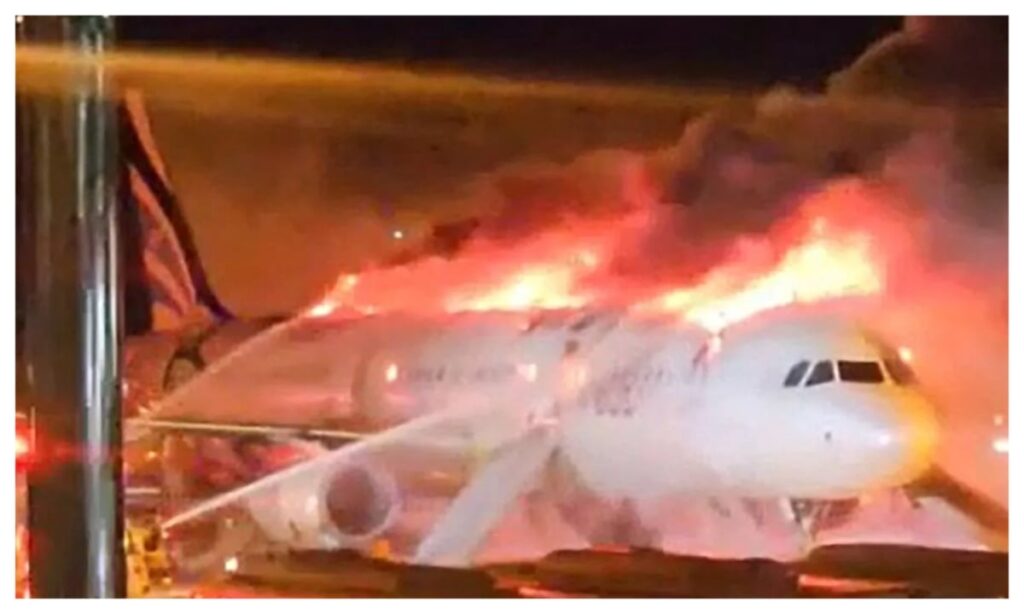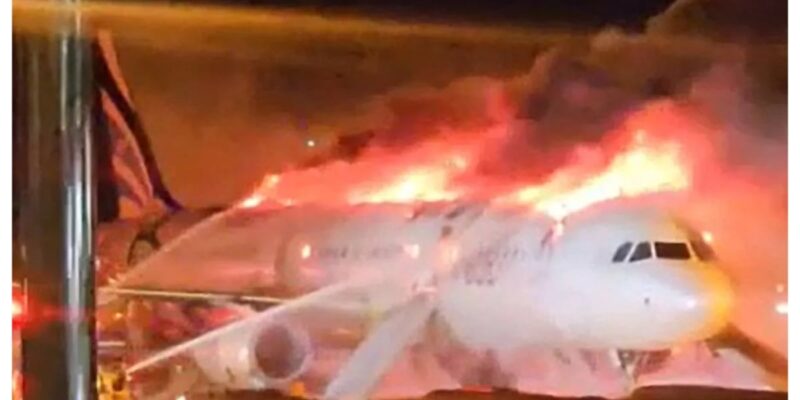
In response to the recent fire incident on an Air Busan aircraft, the South Korean Ministry of Land, Infrastructure, and Transport has announced stricter aviation safety measures, set to take effect from March 1.
The fire, which occurred on January 28 at Gimhae International Airport as the Airbus plane prepared for departure to Hong Kong, has prompted authorities to impose new limits on portable batteries carried by passengers.
Under the new regulations, travelers will be allowed to carry a maximum of five portable batteries with a capacity of up to 100 watt-hours each. Batteries exceeding 160 watt-hours will be prohibited on board. Additionally, charging portable batteries during flights will be banned, and security screenings will now include checks on the number and types of batteries passengers carry.
In line with Air Busan’s recently implemented policy, the ministry also announced that power banks and e-cigarettes will no longer be permitted in overhead cabin bins, aiming to mitigate potential fire hazards.
While the exact cause of the Air Busan fire remains under investigation, the airline confirmed that the fire was first detected by a flight attendant in an overhead luggage bin on the rear left side of the plane. All passengers and crew were safely evacuated.
Global aviation standards already prohibit placing batteries in checked luggage due to the risk of intense fires caused by short circuits from damage or manufacturing defects. This incident has further underscored the importance of stringent battery safety protocols in air travel.

Comments